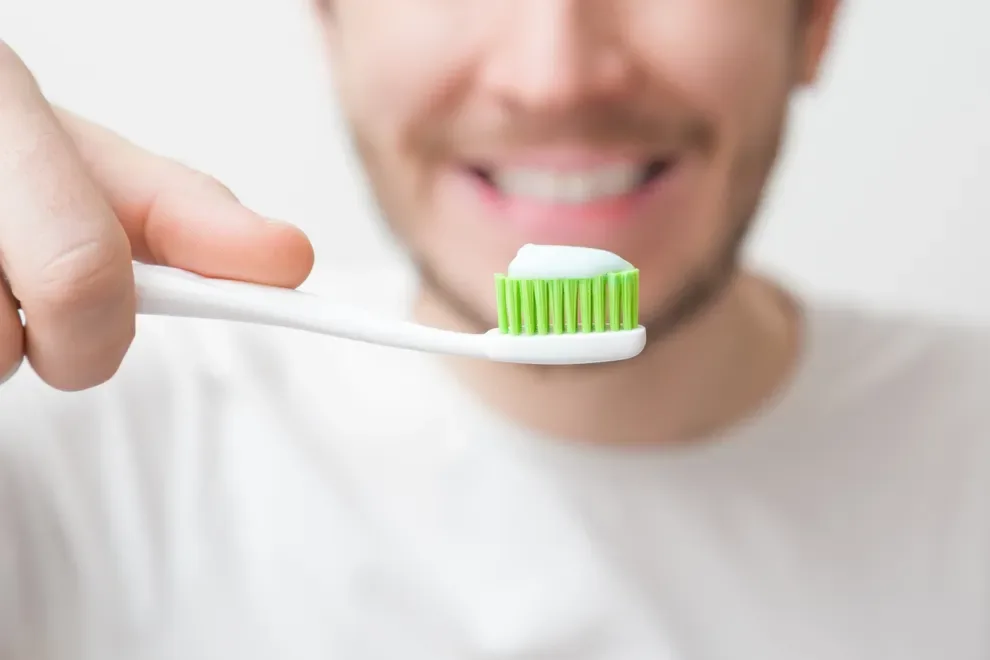Teeth Whitening Options for Sensitive Teeth.

Table of Contents
- Whitening Product Options
- How to Handle Tooth Pain
- Does Tooth Whitening Work?
- References
Do you cringe or wince when you take a sip of ice water? Do you jump during dental cleanings? You could have sensitive teeth, and if you do, special precautions during teeth whitening are vital.
Whitening products work by removing or penetrating the layers of your teeth. Anyone might find that uncomfortable, but for those with sensitivity, the pain can be intense.
You can whiten your teeth, but you must be careful. Choose mild products made specifically with sensitivity in mind.
Choose from 5 whitening products.
Plenty of companies want to help you sport a shiny, white smile. Many of them have developed products made for sensitive teeth. Typically, products that work well for pain-prone teeth are made for at-home use.
Think of teeth whitening products on a spectrum. On one side sit mild products that deal with top surface stains. On the other side are products that dig deep to remove hard-to-reach stains. Gentle products are applied at home. Harsh products require dental appointments.
Researchers say home-based bleaching products cause fewer sensitivity problems than those applied by experts. If they cause fewer problems after treatment, it's reasonable to expect that they'll be better for people who already have sensitive teeth.
Your at-home whitening choices include:
Thin, flexible bits of plastic cling to your teeth. Treatment times vary, but Harvard Medical School says strips with short treatment times have more active ingredients. They can cause more sensitivity issues than those you wear for longer periods.
Whitening toothpaste works slowly. Most people don't see results for two to six weeks.
Some products can make sensitive teeth feel discomfort. The abrasive quality of the paste can remove tooth enamel. But whitening products made for sensitive teeth could be just right.
Bleaching products should stay away from your gums. Gels make that easy, as the liquid tends to stick and stay put. Researchers say gels made with carbamide peroxide tend to cause less sensitivity than those containing hydrogen peroxide.
These products slip into trays that you slide over your teeth. Often, they contain hydrogen peroxide. This substance can spark sensitivity in some people, experts say, but lower levels reduce that risk. Even a 1.5 percent hydrogen peroxide solution causes noticeable changes in tooth color, experts say.
With so many options, how can you choose which one is right for your sensitive teeth? Extremely safe products share a few common attributes, such as:
Low concentrations. Sensitive teeth are delicate, and they respond best to products that are gentle. If you're comparing two products side by side, choose the one with the lowest percentage of active ingredients.
Long treatment times. Gentle products need longer tooth contact time. Beware of products that promise "fast results," as they are the most likely to cause enhanced pain.
Mild ingredients. Most products made for sensitivity have appropriate labeling. You should see something about "sensitive teeth" on the packaging.
It can take time to find a product that's right for your teeth. But you'll soon become a savvy shopper who knows exactly what to look for.
Teeth whitening solutions can enhance tooth sensitivity, and companies are aware of this fact, so they've developed products for people with sensitive smiles.
How to handle tooth pain.
You've chosen a product that seems right for your teeth. But when you're using it, your teeth hurt. What happens next?
The American Dental Association says teeth whitening products tend to cause enhanced sensitivity within two to three days of use. The pain typically disappears four days after treatment ends.
If your teeth are sensitive, stop the treatment. Assess your pain. If it fades, the product is to blame. If it doesn't, you could have another issue (like a cavity) that's causing discomfort. A visit to a dentist is wise.
If you opted for in-office dental bleaching, researchers say your teeth will be sensitive for about a week. Your doctor should discuss this with you before treatment starts. If you feel uncomfortable after treatment, talk with your team.
Does tooth whitening work?
It's reasonable to steer clear of pain. If your teeth are already sensitive, you might wonder if it's worthwhile to whiten your smile.
Remember that tooth sensitivity caused by whitening products does fade with time. And plenty of products cause no enhanced sensitivity at all.
Researchers say teeth whitening certainly works. For example, in a study of smokers, three weeks of bleaching resulted in two units of color change. That's a visible transformation.
At-home products aren't as powerful as dentist versions, but they can deliver results you can see, experts say. They're also significantly less expensive than professional products, so you'll get the help you need at a fraction of the cost.
No matter how white and shiny your teeth are, your smile won't look its best unless your teeth are also straight. Crooked teeth can trap stains, and it's hard to keep them clean when they don't line up properly. Tools like clear aligners can help straighten those teeth, and they can help whiten them too.
Aligners mold to your teeth, and they can serve as effective delivery systems for teeth whitening products. Gels and foams sit in the trays, and they slide onto your teeth for each treatment. In time, you could have teeth that are not only straighter but whiter too.
